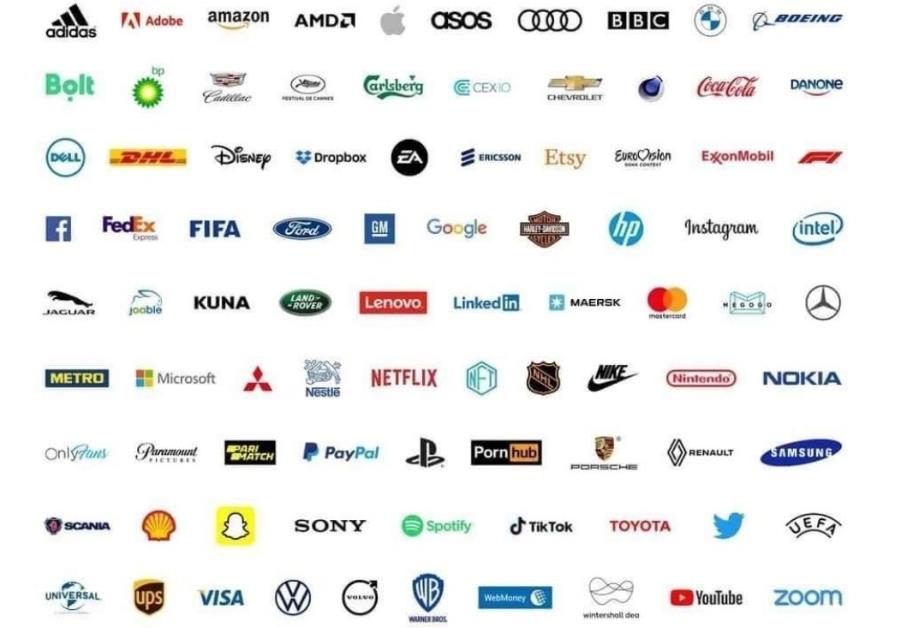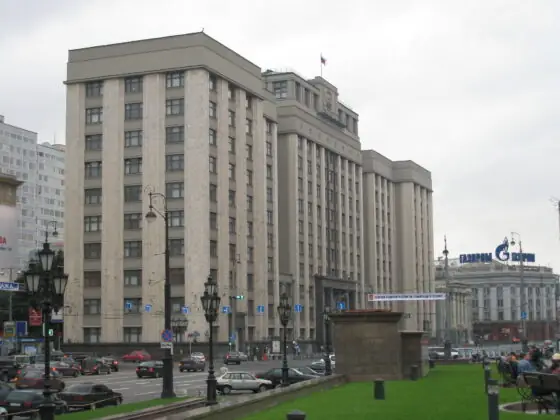(PONARS Eurasia Commentary) Russia’s war on Ukraine has heavily divided the business world. Some companies chose to depart Russia out of solidarity with Ukraine or out of the increasing inconvenience of remaining in the sinking Russian market. Other companies have persisted operating in Russia regardless. As more enterprises leave and Russians encounter a brand-deprived world, questions arise about the justifications for pulling out of Russia. The departure of McDonald’s, for example, made international news, placing it as a forerunner in the “leave” camp. Meanwhile, major wholesaler Metro decided to stay—citing a responsibility to its employees—even after much controversy and negative global press coverage. As war wages on and the sanctions continue to mount, debates occur about the morality of sanctions and goods embargo, with some defending Russia’s isolation as a just punishment, while others call for consideration toward the lives of normal Russians who, too bear the consequences of the sanctions.
The Leave Camp
Early in the war, McDonald’s announced its departure from Russia citing the “unspeakable suffering” caused by the conflict. Meanwhile, the Ukrainian branch of McDonald’s said it would provide food for communities in need and work with local authorities to distribute food. It also purchased humanitarian aid from Poland, sending it to residents in eastern Ukrainian cities such as Kharkiv and to members of the Ukrainian Army.
McDonald’s sold its restaurants in Russia to a local operator, and the chain reopened under a new name: Vkusno I Tochka (“Tasty and Nothing Else”). CEO Chris Kempczinski noted that the Russian departure was incredibly hard but that “…our commitment to our values means that we can no longer keep the arches shining there.”
Similar solidarity was expressed by Airbnb, the U.S. vacation rental company. Initially, Airbnb.org, an affiliated non-profit that has worked to provide those in need with housing since 2012, stated that it would offer more than 100,000 lodgings for Ukrainian refugees either for free or at a discount. This was followed by an announcement from Brian Chesky, the CEO of the company, who Tweeted that the company would suspend operations in Russia and Belarus.
The public found a clever way to utilize Airbnb to bring money directly to Ukrainians in need by booking lodgings in Ukraine, which sends money to “landlords.” The idea gained traction, Airbnb waived its local commissions, and more than 400,000 nights have been booked, providing hosts in Ukraine with $15 million (as of mid-March).
Some energy companies also decided to make a positive move. Shell, the multinational oil and gas company, stepped away from Russian gas and oil. In a press statement, the company wrote that it would “Immediately stop buying Russian crude oil on the spot market, and we will not renew term contracts.” Furthermore, it said it would “start our phased withdrawal from Russian petroleum products, pipeline gas, and LNG.” As a bonus, the company stated that profits gained from any Russian oil it purchases would be placed in a fund for Ukraine.
The Remain Camp
Some companies have come under fire for their response to the war. Among the many famous names is the Germany-based multinational retail and wholesale chain Metro, which operates in Ukraine as well as Russia.
Metro Cash&Carry Ukraine, the Ukrainian branch of the company, demanded that its parent company, Metro AG, cease operations in Russia. The director of public affairs for Metro in Ukraine, Olesya Olenytska, stated that, despite the difficulties of the war, it would work to provide civilians and members of the army with food. However, despite Metro AG’s condemnation of the war, the parent company chose not to close down its stores in Russia, citing its responsibility to its 10,000 employees who had no direct responsibility for the war in Ukraine.
A similar scandal transpired because of the continued operation of Leroy Merlin, a French global home improvement retailer (part of the ADEO Group). The war forced six Leroy Merlin stores in Ukraine to close, and its staff suffered devastating losses when a rocket struck a store in Kyiv, killing an employee inside. The Ukrainian corporate office of Leroy Merlin made demands that ADEO Group ceases operating in Russia, writing on Facebook:
“Since the beginning of the invasion of Ukraine, our Ukrainian representative office has constantly been asking the parent company to stop working in Russia, and the response has been disappointing for us. Unfortunately, ADEO does not intend to cease operations in the aggressor country.”
Instead of closing its stores in Russia, ADEO chose to continue operating and cut off its Ukrainian office’s corporate communications, causing major disruptions between the Ukrainian office and its French headquarters, as well as between Ukrainian employees themselves. Lyudmila Dzyba, an HR manager of Leroy Merlin in Ukraine, wrote: “At the moment, many of our employees are in danger, in the occupied, bombed regions under the rubble. We are simply broken by such actions of the Group.”
ADEO responded by doubling down on its activity in Russia, announcing it would expand its presence in the country so as to “adjust to sanctions and the departure of rival Western chains,” according to The New York Times’ European business correspondent Liz Alderman.
Companies that have stayed in Russia have received harsh criticism from Ukraine’s President Volodymyr Zelensky, who told French officials that French companies must “stop financing the deaths of children and women,” adding that “Everyone must remember that principles are worth more than [financial] benefits.” As of July, ADEO remains in the Russian market.
Ongoing Assessments
Some companies have had a change of heart. Following a month of boycott calls and public pressure, French sports retailer Decathlon announced its suspension of operations in Russia, citing operational challenges and its desire to comply with the sanctions. The company then donated almost $3 million worth of equipment to NGOs.
UNIQLO, a Japanese casual wear and apparel company, initially chose to stay in the Russian market but then departed following backlash. The CEO of the parent company, Fast Retailing, Tadashi Yanai, justified staying in the Russian market by saying that clothing is a necessity of life and that “the people of Russia have the same right to live as we do.” However, as pressure grew and the sanctions complicated logistics, the company announced that it would “temporarily” cease its operations in Russia. It added a link detailing its donations to the UNHCR, revealing that the company decided to give $10 million and 200,000 clothing items to Ukrainian refugees.
Whether UNIQLO will re-launch its operations or stay closed is uncertain, but it has nonetheless entered the club of more than 1,000 companies that have closed their doors in Russia since it invaded Ukraine.
The Morality of Embargoing Goods
The idea of punishing a country by depriving it of products and services is not new. Iran has been under U.S. sanctions since 1979 following the hostage crisis at the U.S. embassy in Tehran and the Islamic Revolution. Furthermore, the EU has implemented several sanctions in the financial sector and prohibits trade of many goods, especially those used in the energy sector. And yet, despite the difficulties, the Iranian population continues to experience life-as-usual in many areas, even if it is made more complicated by the sanction.
With its invasion, Russia managed to surpass Iran in the number of sanctions imposed against it (more than 5,000), becoming the world’s most sanctioned country. The Intercept journalist Murtaza Hussain argues that sanctions do punish the elites, but that ordinary people can end up impoverished, and the denial of important basic goods can lead to stockpiling and disquiet, such as in the Russian town of Pokrov where locals fought over sugar.
Salil Tripathi of the Institute of Human Rights and Business outlines the difficult balance. He said that companies should be especially careful in how they conduct their operations and avoid harming blameless civilians:
“Any decision they take, they should bear in mind the impact on civilians. If their business activity In Russia contributes towards strengthening the Russian military or Putin’s objectives that are illegal under international law, they should leave. By staying, they run the risk of being complicit. But if they leave purely to appease vocal constituencies, they may end up harming civilians who do not bear the responsibility for Putin’s disregard for international law, and they might, in fact, be critical of the war.”
For Andy Hunder of the American Chamber of Commerce in Ukraine, who is in Kyiv: “Financing a war crime is also a war crime.” He says that companies must safeguard their reputations earned over many years and not “pay taxes” to an aggressor’s budget. When asked whether there should be exceptions made for critical goods, he simply said: “No Botox for Vladimir Vladimirovich Putin.”
Ekaterina Shengeliya is a Senior Undergraduate Student at the George Washington University and a Research Assistant at the Elliott School’s Institute for European, Russian and Eurasian Studies (IERES). Twitter: @eshenheliia
The Yale Chief Executive Leadership Institute is tracking companies that have curtailed operations in Russia.
Image credit











